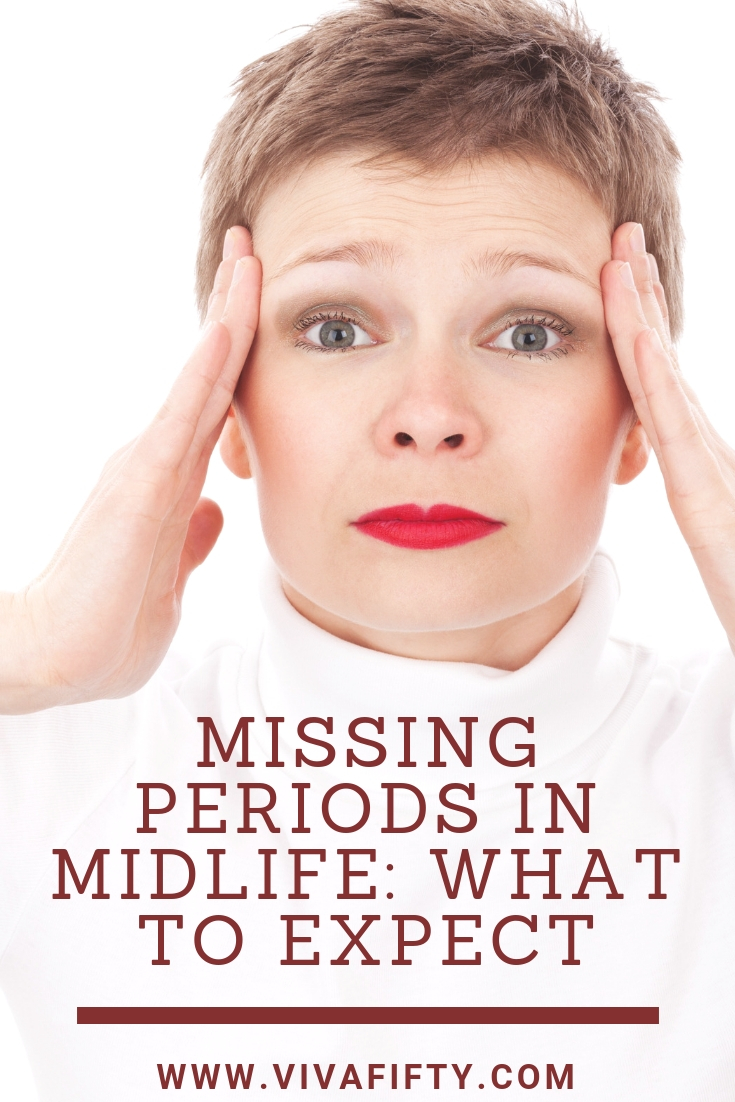Missed periods are something many women begin to experience as they cross into their midlife years, and can often continue until they reach menopause and no longer have a cycle at all.
Menopause is defined by the absence of a period for more than a year, but until it’s official, you’ll probably miss a few or more along the way.
For women who have had regular periods most of their lives, this can be understandably concerning—whether it be due to fears of poor healthy or the possibility of an unplanned pregnancy.
But for most women, it’s a normal part of aging. Just as the rest of your body ages, your ovaries and uterus do as well, and while you can’t see the changes they are still happening.
Here are some things you can expect if you start missing periods during midlife.

Irregular periods can happen for years at a time
Pre- or perimenopause can last as many as 10 years, and some women will experience changes in their menstrual cycles from the very beginning.
Most typically, periods become shorter and closer together in the early years and then cycles get longer and longer until menstruation ceases permanently and you are officially in menopause.
This means that you may get what seem like regular periods for months at a time, then skip a month or more and then get regular periods for a while again.
The exact process is different for every woman since no two women have the exact same estrogen and progesterone levels at any given time.
The age it starts varies from woman to woman
If you are entering perimenopause–the period before menstruation ceases permanently–and you start missing periods, you may know many other women experiencing the same thing, or none at all.
The age that perimenopause begins can vary greatly from woman to woman.
Some women enter this stage in their thirties, while others don’t notice any symptoms including missed periods until they are closer to 50 or even later.
So your BFF may not have a clue what you’re talking about when you bring up your missed periods.
Also read: When missed periods may mean menopause

Your period might be heavier when you do get it
If you miss two or more periods, you may notice that the next time you get a period the flow is heavier and it lasts longer.
That’s because the uterine lining that would normally have shed the months you didn’t have a period is now shedding all at once, resulting in a heavier, more uncomfortable period.
Spotting can still happen
While you may not get a full-blown period, you might experience some spotting when your period is due or even in between regular cycles.
For many women, this is totally unpredictable, so you might considering keeping panty liners on hand.
It’s not necessarily perimenopause
While hormonal changes and perimenopause are the most common reason for missed periods in midlife, there are other reasons for skipping a period.
Stress, weight loss or gain, your method of contraception and/or underlying health conditions such as endometriosis and uterine fibroids could all cause missed periods.
Your doctor can rule out other causes
If you’ve experienced several unexplained missed periods and are feeling unsure or anxious, your doctor may be able to give you some peace of mind.
There are a number or blood tests and ultrasounds that can be performed to rule out any other health issues that may be causing the missed periods and determine whether you are actually just experiencing perimenopause.
You may be able to regulate it
Additionally, as long as your missed periods are not caused by any other medical problem, your doctor may be able to help you regulate your cycles if the unpredictability is really stressing you out.
You can take birth control pills or use an IUD to regulate your hormones or even stop your periods altogether.
Some women even choose to undergo a uterine ablation in order to permanently destroy the uterine lining in order to stop bleeding permanently.






Leave a Reply